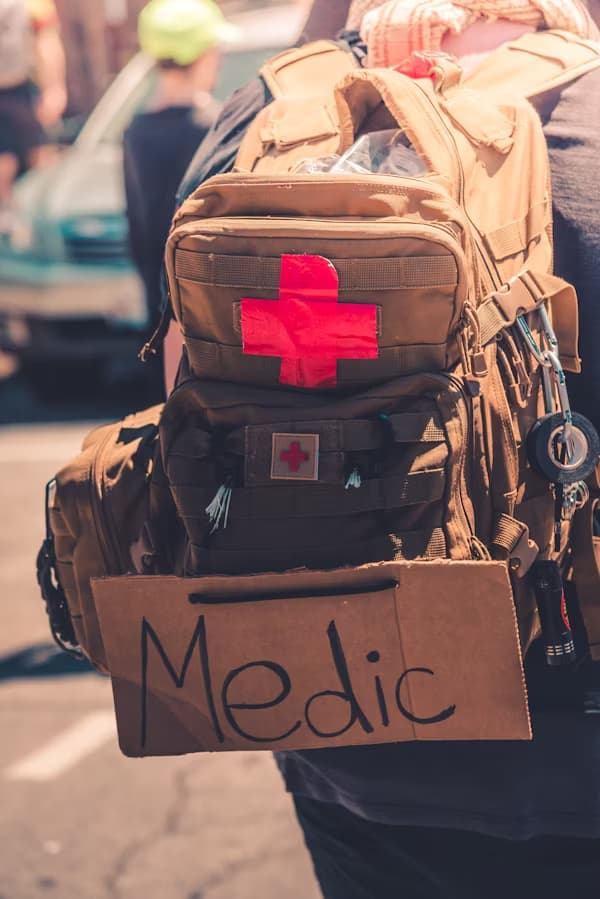Sanctions imposed by the US Office of Foreign Assets Control (OFAC) have a profound impact on international operations, including humanitarian missions and rescue operations. Although sanctions often have political or economic objectives, they can create unforeseen obstacles for organizations such as trade unions and fire departments that are involved in providing humanitarian assistance in disaster or crisis areas. This text will explain how financial restrictions and transaction bans can hinder the delivery of aid, the coordination of efforts, and the movement of personnel to regions subject to sanctions.
How do OFAC sanctions hinder international humanitarian aid?
Sanctions imposed by OFAC can affect the organization of international operations and lead to delays or a complete halt in rescue efforts. When aid is sent to a country or region subject to sanctions, various logistical and financial barriers can slow down or completely block the process. One of the main obstacles is financial restrictions that prohibit the transfer of funds to certain regions.
For humanitarian aid organizations, such as fire departments and unions, this means that they cannot freely move funds or conduct transactions with local partners or governments. In some cases, even small donations or investments can be blocked if they are directed to countries subject to sanctions. In addition, sanctions often make it difficult to work with local suppliers, which can cause shortages of essential goods such as medicines, food, and rescue equipment.
What financial and logistical barriers do sanctions create for rescue workers and trade unions?
The challenges faced by trade unions and fire services working in international humanitarian aid may include the following barriers:
- Blocking transactions: Sanctions may prevent the transfer of funds to pay for rescue workers or purchase necessary goods and services.
- Limited financial resources: Even if an organization has the funds to carry out an operation, sanctions can block access to international banking systems, making it difficult to pay and transfer funds.
- Logistical constraints: Sanctions may limit the ability to transport goods or move people to disaster areas, especially if these regions are subject to international sanctions.
- Blocking imports and exports: The imposition of sanctions may hinder the import of medical supplies, construction materials, and other necessary aid to regions experiencing crises.
- Legal risks: Failure to comply with sanctions regulations may result in legal consequences for organizations, putting their activities at risk.
Fire departments and other humanitarian organizations may face legal and financial consequences if they do not strictly comply with all sanctions requirements.

Problems with coordination and movement of personnel
Sanctions also make it difficult to coordinate efforts between various international humanitarian organizations. Trade unions and fire departments often collaborate with international partners such as non-governmental organizations and government agencies. However, under sanctions, such partnerships may be limited, as many international organizations may not be allowed to work with countries subject to sanctions.
In addition, problems with the movement of personnel and volunteers are another obstacle. Many countries subject to sanctions may restrict or completely close their borders to foreign citizens, which will make it difficult for specialists traveling to provide assistance to do their work.
- Inability to transport equipment: Specialized equipment for rescue operations, such as rescue helicopters or medical devices, cannot be delivered to a country subject to sanctions if it is manufactured in countries that support the sanctions.
- Restrictions on the movement of rescue workers: In some cases, even rescue workers who are citizens of countries not subject to sanctions may encounter difficulties when trying to enter the disaster area due to restrictions related to sanctions.
How to avoid unintentional sanctions violations
For organizations operating under sanctions, it is important to monitor compliance with all OFAC requirements. Violation of these rules can lead to asset freezing, fines, and other legal consequences. Some measures to ensure compliance with sanctions include:
- Regular checks of partners and counterparties: All local partners with whom the organization interacts must be thoroughly checked to ensure that they are not subject to sanctions.
- Employee training: Employees must be trained in the basics of sanctions legislation and understand how to conduct business properly under restrictions.
- Applying for licenses: If necessary, organizations can apply for special licenses from OFAC that will allow them to conduct restricted transactions under the sanctions regime.
The price paid by vulnerable groups
When sanctions restrict the work of humanitarian organizations, this directly affects vulnerable populations such as refugees, conflict victims, and others in need. In some cases, sanctions can lead to delays in receiving aid or even block it altogether, resulting in worsening living conditions and increased suffering.
Humanitarian missions carried out by trade unions and firefighters can have a critical impact on saving lives, especially in regions where there is a shortage of basic goods and medical care. The inability to provide such assistance due to sanctions restrictions can exacerbate the humanitarian crisis.
Navigation under strict control
Organizations operating under sanctions need to develop strategies that will enable them to continue providing assistance despite existing barriers. This may include closer cooperation with local and international partners, as well as the use of new technologies for more efficient distribution of aid. Continuous compliance with all sanctions legislation requirements and active engagement with regulators will help avoid legal risks and maintain the effectiveness of humanitarian operations.
